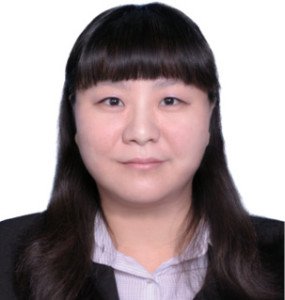Q: Can a co-owner of a cinematographic work independently institute a legal action for copyright protection?
A: Article 9 of the Implementing Regulations for the Copyright Law specifies that, “where a co-operative work cannot be split up and the individual pieces used separately, its copyrights are jointly enjoyed by the co-operating authors and must be exercised subject to a consensus being reached through consultations. Where a consensus cannot be reached, none of the parties may obstruct, without legitimate cause, the exercise of the rights, other than transfer, by another of the parties, provided that the benefits derived are reasonably distributed among all of the co-operating authors.”

ZHANG DAN
安杰律师事务所
合伙人
Partner
AnJie Law Firm
Viewed from the perspectives of enhancing adjudication efficiency and better protecting the lawful rights of copyright holders, the adjudication policy of the courts in the Beijing region is as follows: “Where the copyrights in a cinematographic work vest in multiple rights holders and the basic particulars of the rights holders can be ascertained, all of the rights holders must serve as parties to the case. If ascertainment of the basic particulars of the rights holders is genuinely difficult, one or some of the rights holders may serve as parties to the case, provided that, in the section on the grounds for the decision, the corresponding share of the rights is retained for those copyright holders that did not participate in the legal action, for example, stating that, ‘The other holders of the copyrights in the work in question may claim from the plaintiffs in the case a share of the damages for the economic loss incurred as a result of the alleged infringement’.”
Q: Can the title of a cinemaographic work, the names of the characters, the plot or the composition be copyrighted?
A: The Copyright Law protects the expression of an idea, not the idea itself. If the title of a cinematographic work, the names of the characters, the content, composition, etc., are expressed in the usual manner, they cannot independently express the ideas or emotions of the work, or if they are the known and only means of expression, they are not protected by the Copyright Law. If the title of a work, its content, plot or composition is unique, it may constitute a work or give rise to copyright. If the title of a work, its content, plot lines and composition linked together form an original whole, the whole constitutes a subject of protection by the Copyright Law.
You must be a
subscribersubscribersubscribersubscriber
to read this content, please
subscribesubscribesubscribesubscribe
today.
For group subscribers, please click here to access.
Interested in group subscription? Please contact us.
你需要登录去解锁本文内容。欢迎注册账号。如果想阅读月刊所有文章,欢迎成为我们的订阅会员成为我们的订阅会员。
Zhang Dan is a partner at AnJie Law Firm




























